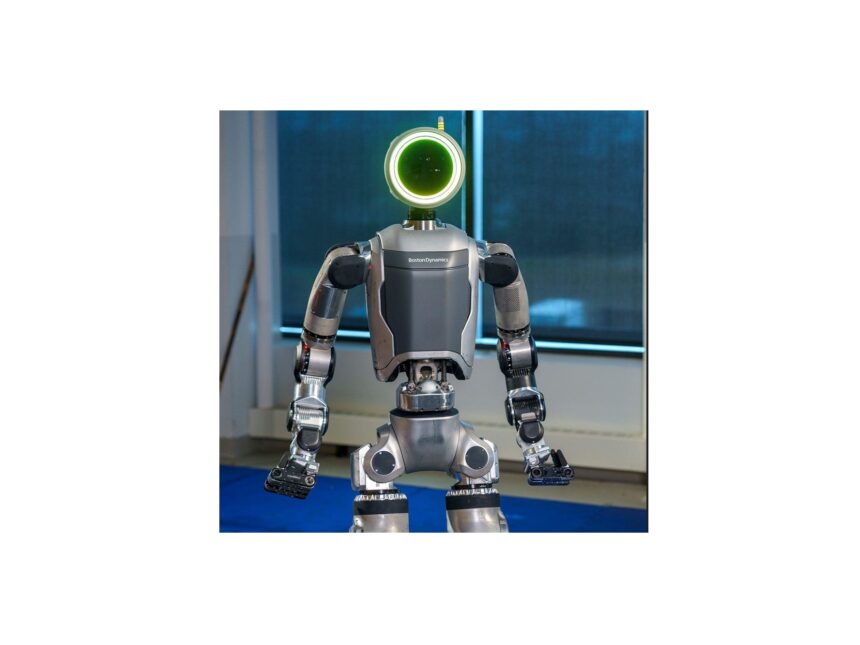Boston Dynamics, in collaboration with Toyota Research Institute (TRI), is set to accelerate the development of general-purpose humanoid robots. The partnership brings together two leading artificial intelligence (AI) and robotics companies, combining TRI’s Large Behavior Models with Boston Dynamics’ Atlas robot.
Boston Dynamics, owned primarily by Hyundai Motor Corporation, is renowned for its humanoids with exceptional capabilities ranging from extreme mobility to bimanual manipulation. The latest generation of the Atlas robot, a result of years of hardware/software co-design, is hailed as the most capable humanoid platform, both in physical capability and software interfaces for authoring whole-body behaviors.
On the other hand, TRI is recognized for its pioneering work on Large Behavior Models (LBMs) for robotics. The institute’s research focuses on diffusion policy and the application of generative AI to advance dexterous manipulation capabilities in robotics. TRI has also contributed significantly to the development of open-source robot AI models and datasets, aiming to achieve multi-task, vision-and-language-conditioned foundation models for dexterous manipulation.
Robert Playter, CEO of Boston Dynamics, expressed enthusiasm about the partnership, stating, “There has never been a more exciting time for the robotics industry. This collaboration exemplifies two companies with a strong research-and-development foundation working together to tackle complex challenges and develop robots that solve real-world problems.”
Gill Pratt, Toyota’s chief scientist and CEO of TRI, highlighted the potential of recent advances in AI and machine learning for advancing physical intelligence. The integration of TRI’s state-of-the-art AI technology on Boston Dynamics’ hardware is expected to be transformative for both organizations as they strive to enhance people’s lives and quality of life.
The collaboration between Boston Dynamics and TRI aims to leverage the physical capabilities of the new electric Atlas robot, along with programmatically commanding and teleoperating a wide range of whole-body bimanual manipulation behaviors. This will enable research teams to deploy the robot across various tasks, collect performance data, and support the training of advanced LBMs.
The joint team will also delve into fundamental training aspects for humanoid robots, explore the potential of research models to utilize whole-body sensing, and address human-robot interaction and safety considerations to enhance these new capabilities.
Overall, the partnership between Boston Dynamics and Toyota Research Institute signifies a significant milestone in the robotics industry, paving the way for the development of advanced humanoid robots with enhanced capabilities and applications in real-world scenarios.







